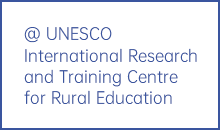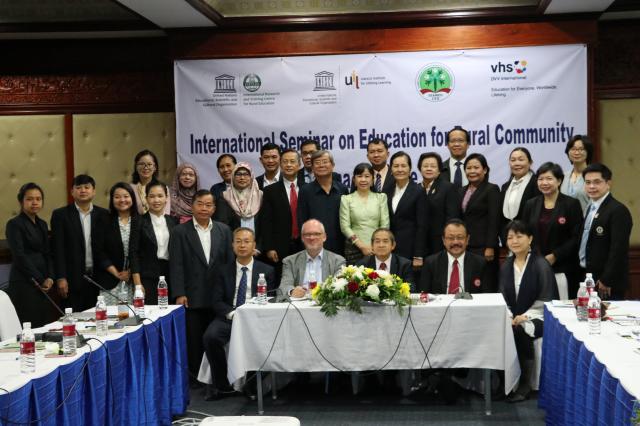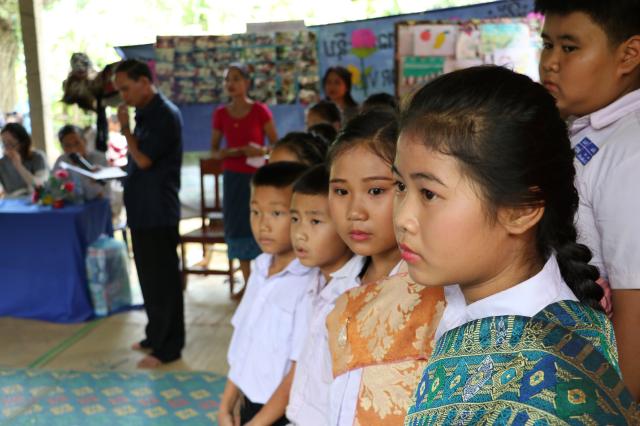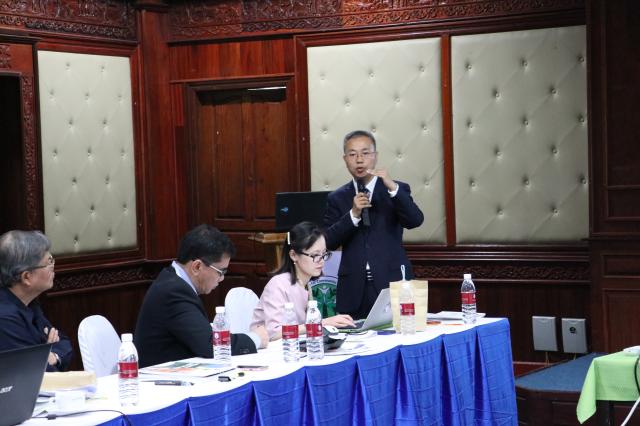Vientiane, Lao PDR, 1-3 August 2018 – Jointly organized by UNESCO International Research and Training Centre for Rural Education (INRULED), Regional Centre for Community Education Development (SEAMEO CED), UNESCO Institute for Lifelong Learning (UIL) and DVV International, International Seminar on Education for Rural Community was successfully held with more than twenty active experts and scholars from four Mekong sub-region countries – Cambodia, Lao PDR, Thailand, China, as well as SEAMEO Member Countries – Malaysia, Singapore, Brunei and Indonesia.
Centered on the topic of “Education for Rural Community”, the seminar was contextualized in Education 2030 and the Mekong cooperation mechanism, attaching great importance to basic education and community learning opportunities for ethnic minorities in Mekong sub-regions countries, establishing conversation platforms and cooperation networks, delving deeper into the role of community learning center in developing practice, and drafting educational plans that satisfy the needs of rural communities and fit in with the actual rural environments according to different national conditions, thereby realizing sustainable and healthy development in sub-region.
In order to capture a clearer picture of the actual situation of local community education, participants launched field investigations, visiting community education centers in provinces, districts, villages, coupled with informal vocational education centers, and having elaborate communications there with students and teachers.
During the seminar, the initial expert meeting of the research project on lifelong learning for ethnic groups in Mekong sub-region was also held.
The objective of this research project is to promote the participating countries to share political frameworks and practice cases regarding the lifelong learning for ethnic minorities, to facilitate international communications and experience learning, to advocate the inheritance of minor cultures, so as to achieve sustainable development in Mekong sub-region. The project will be reviewed in an English research report, which is scheduled to be published in 2019, the UN international year of aboriginal language.
















